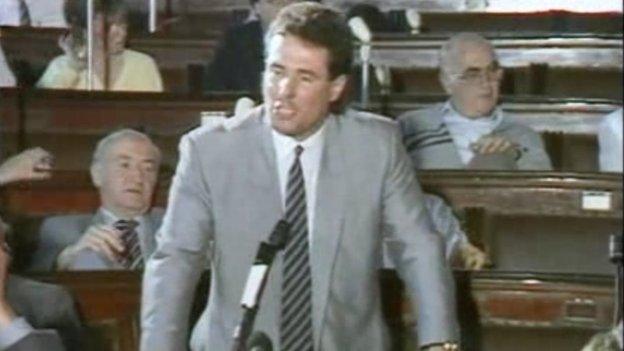What is a Trotskyist?
- Published
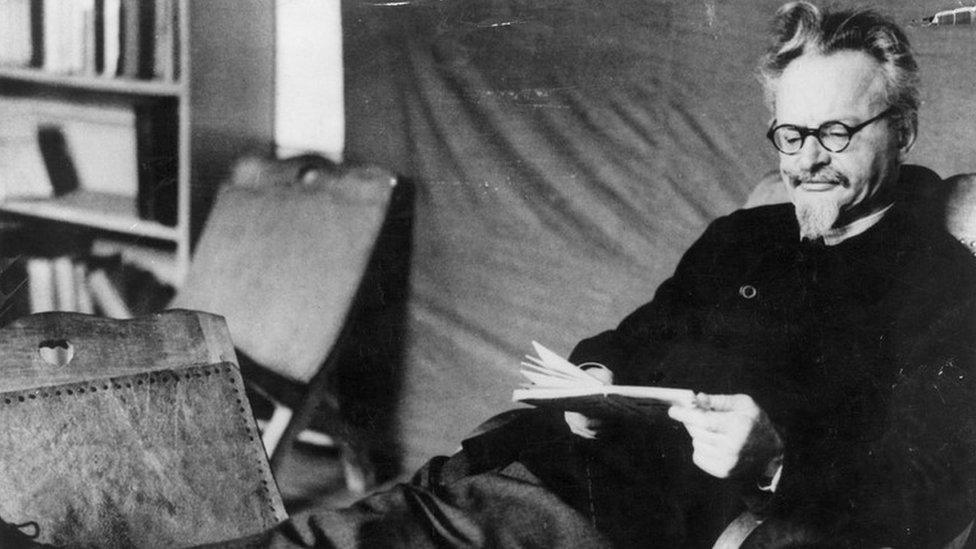
Leon Trotsky was killed by a Stalinist assassin in 1940
Labour's deputy leader Tom Watson has said "Trotsky entryists" are "twisting arms" of young Labour members to back Jeremy Corbyn - what does he mean?
Some Labour supporters on Twitter were puzzled by his words - they said they had never heard of Trotsky and had no idea what an "entryist" was. Mr Corbyn's team accused him of peddling conspiracy theories.
Trotskyism has its origins in early 20th Century Russian politics and the path pursued by one of the founders of the Soviet Union, Leon Trotsky.
Trotsky was the head of the Red Army and a key player in the violent revolution that toppled the Russian tsar and established the world's first socialist state.
But he split with Stalin after the death of his fellow revolutionary leader, Lenin. Stalin believed they could create a socialist society in their own country without a world revolution.
Ice axe
Trotsky believed his country could achieve socialism only if the working classes around the world rose up as one to overthrow the ruling classes - the doctrine of "international socialism".
He believed the Soviet Union had become a dictatorship under Stalin and advocated more democracy in the one party state.
He was murdered by a Stalinist assassin, in Mexico, in 1940, where he was living in exile after being expelled from the Soviet Union.
Trotsky's killer embedded an ice axe in the revolutionary's head.
What has any of this got to do with 21st Century British politics?
Trotsky inspired followers around the world and they still survive to this day on the fringes of British politics.
They have never had much success in elections, seeming to spend more time fighting each other and splitting into rival factions with confusingly similar names than taking on the powers that be.
There is a poignant clip of actress Vanessa Redgrave, whose family were heavily involved with the Trotskyist Workers Revolutionary Party, defiantly lecturing her 1974 general election opponents on the urgent need for a socialist state, after gaining just 574 votes in Newham North East.
Archive: Workers Revolutionary Party candidate Vanessa Redgrave concedes election defeat
The "entryism," or "entrism" as it is sometimes called, that Mr Watson and others have warned about is the practice of entering another group, taking it over, and using it as a way to gain power.
Trotsky himself advocated entryism, advising his British followers, in a 1936 letter, to form a "secret faction" in the Labour Party to push his revolutionary agenda.
Militant Tendency
But he was not the first revolutionary leader to advocate the tactic - the Labour Party had been expelling hard-left entryists since the 1920s.
British communists, inspired by the Russian Revolution, had little time for the Labour Party's belief in democratic socialism, believing revolution, and the abolition of Parliament, was the only way to free the working classes.
Trotskyist entryism did not begin to bear any real fruit until the 1970s, with the rise of the Militant Tendency.
Militant drew much of its support from young people hungry for social change and disillusioned with what they saw as Labour's watered-down version of socialism - they believed capitalism was beyond reform and the only answer was to nationalise private industry without compensation.

Derek Hatton was thrown out of the Labour Party in 1986
Supporters of the Marxist newspaper Militant, they underwent intensive training in Trotskyist ideology as they set about taking over local Labour Party branches.
It was initially a clandestine organisation, with potential recruits being approached individually and invited to attend secret meetings.
Illegal budget
David Cowling, the BBC's former head of political research - who as a special adviser to a Labour minister in the 1970s and 80s had a ringside seat in the party's battles with Militant - says its supporters were "intensely disciplined, giving up their homes and jobs to travel elsewhere to sell the message, with the devotion of a religious sect".

A demonstration in support of the Labour council in 1985
At its height, Militant is thought to have had about 8,000 supporters. The faction's poster boy was Derek Hatton, the brash, Armani-suited deputy leader of Liverpool City Council.
In 1982, after the Liverpool Labour Party defied the Thatcher government's cuts to local government by setting an illegal budget, Militant was banned by the Labour Party and, after a string of expulsions, dwindled in influence.
Some have revived the "entryist" term in light of the resurgence of the left wing of the Labour Party and the influx of new members who back Jeremy Corbyn for leader.
But, as David Cowling points out, it can be used as a "pejorative catch-all" term and "the battle is to distinguish between genuine Trotskyists and those decried as such".
One group that is still happy to call itself Trotskyist is the Workers Revolutionary Party.
The party was reluctant to talk to the BBC over the phone, but members said they believed Trotsky's philosophy had never been more relevant, particularly when it came to the way the Labour Party had "betrayed the working class".
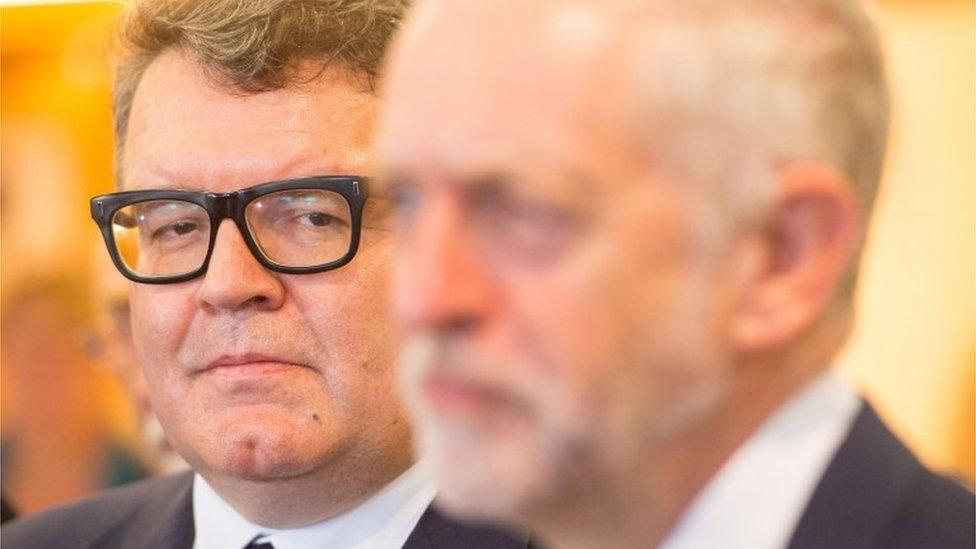
Some of the leading lights in Militant are still active in left-wing politics and its successor organisation, The Socialist Party of England and Wales, is agitating to deselect Blairite Labour MPs and backing Mr Corbyn in his battles with so-called moderate Labour MPs.
Mr Corbyn was never a member of Militant, although he fought against their expulsion in the 1980s.
And Momentum - the grassroots organisation set up to support Mr Corbyn - is clearly a very different beast, operating as it does in an open fashion.
Mr Watson has said he does not believe that the "vast majority" of Labour members that have joined the party are "all Trots and Bolsheviks".
But like many Labour MPs, he sees signs of entryist tactics at work, even though it is sometimes very difficult to get a handle on the allegiances and motivations of the British hard left.
"The followers of Leon Trotsky, like those of Jesus Christ, may all believe in the teachings of the same man, but they have rarely been united," writes journalist Michael Crick in his 1984 book on the rise and fall of Militant.
The book was republished earlier this year with a quote from Mr Watson on the front cover describing it as a "must-read for Labour activists".
He has now written to Mr Corbyn asking him to take action against members of The Socialist Party, and another group, the Alliance for Workers Liberty, which he claims are using the Labour Party "as a vehicle to achieve their revolutionary aims".
He even claims some Momentum members are using Mr Crick's book as a manual on how to take control of local Labour parties. The row is clearly not going to go away.
- Published11 August 2016
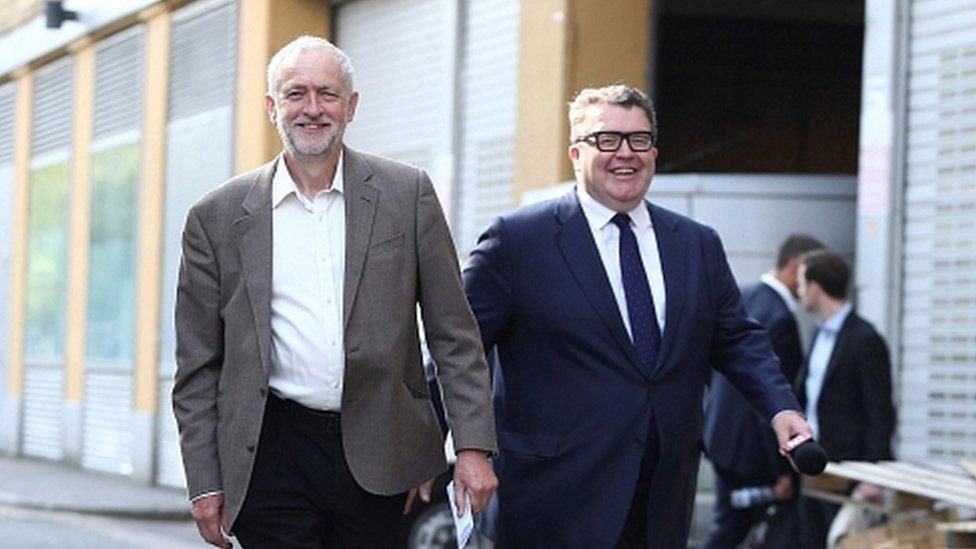
- Published9 August 2016
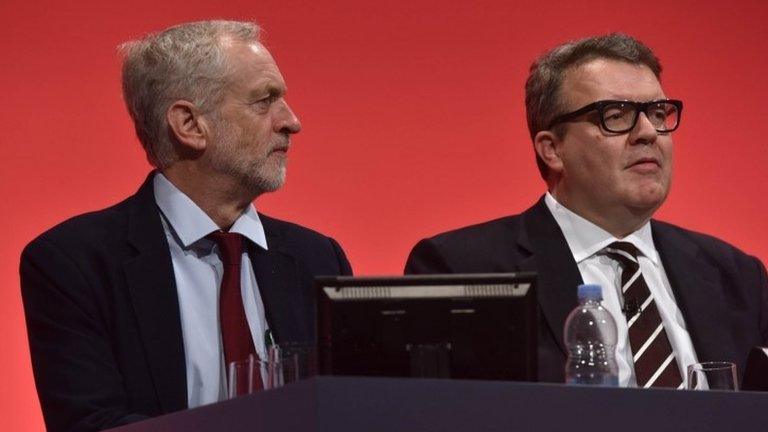
- Published13 December 2013
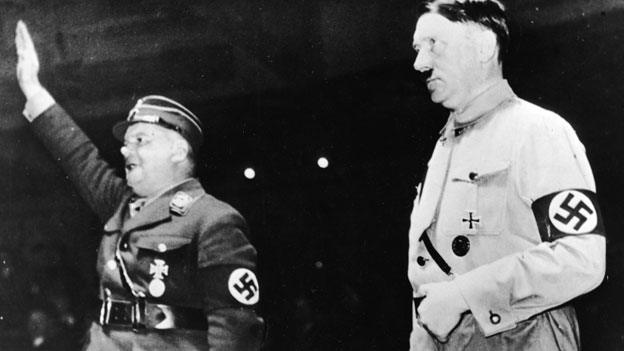
- Published28 August 2012
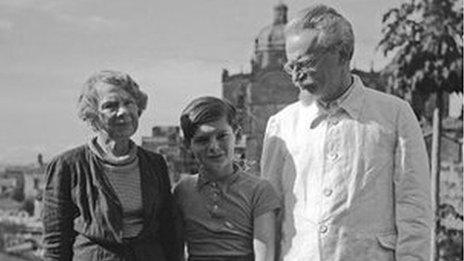
- Published28 May 2015
